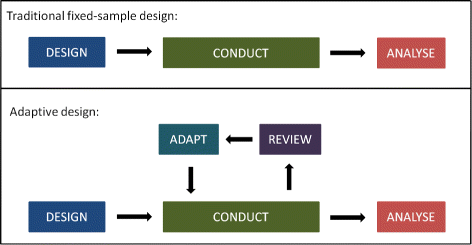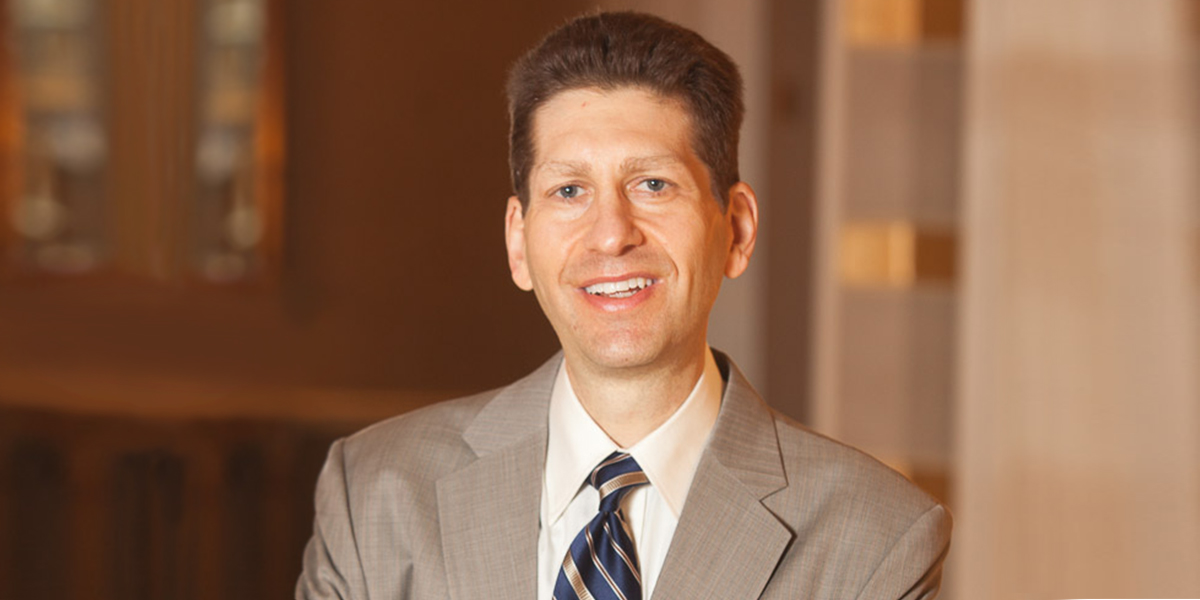Traditionally, researchers run clinical trials (RCTs) in three steps:
- They formulate the trial.
- They conduct the trial via a preconceived design.
- They analyze the data according to a pre-specified plan.
When you have only a few bucks, little time to spare, and billions of dollars on the line, what might you do to economize the enterprise and keep your reputation intact? A public health emergency is exhibit A on that front.
Think adaptive trial design.
Here is a visual on how one might imagine an adaptive trial. Think of it as a plan to be flexible–say, driving with your eyes open, or taking insurance against assumptions you might make at the planning stages of your study.

A key in doing an adaptive trial versus modifying an RCT while it’s live is declaring upfront EXACTLY how you will make changes if specific data signals present. Without the adaptive design, you would be locked in and forced to go down a potentially futile outcome path. It’s all about integrity in how you approach any revisions anyone would apply to the study arms.
With an adaptive track, say in the instance of COVID, you might nix an inpatient arm over an outpatient one because of what data findings indicate–those at time zero a data monitoring safety board (DMSB) planned on surveying at a prespecified point. You might refine the sample size, drop specific treatments or doses, or even stop the trial to spare resources as a result. You can see with Corona unknowns and the need for speed why this trial design type has come into favor of late.
You all know the big NEJM trial reported out for Remdesivir in late May (shortened LOS but with a trend in mortality reduction only, HR 0.70; 95% CI, 0.47 to 1.04) As I wrote above, any adaptive design–without above board modifications and for lack of a better word, messaging–will generate conclusions naysayers might deride leading to headlines like below. Again, the study was not rigged or modified mid-course to make insider data shine. But you can see how any scientific community might see the shift as a sponsor or manufacturer tipping the scale.



Leave A Comment